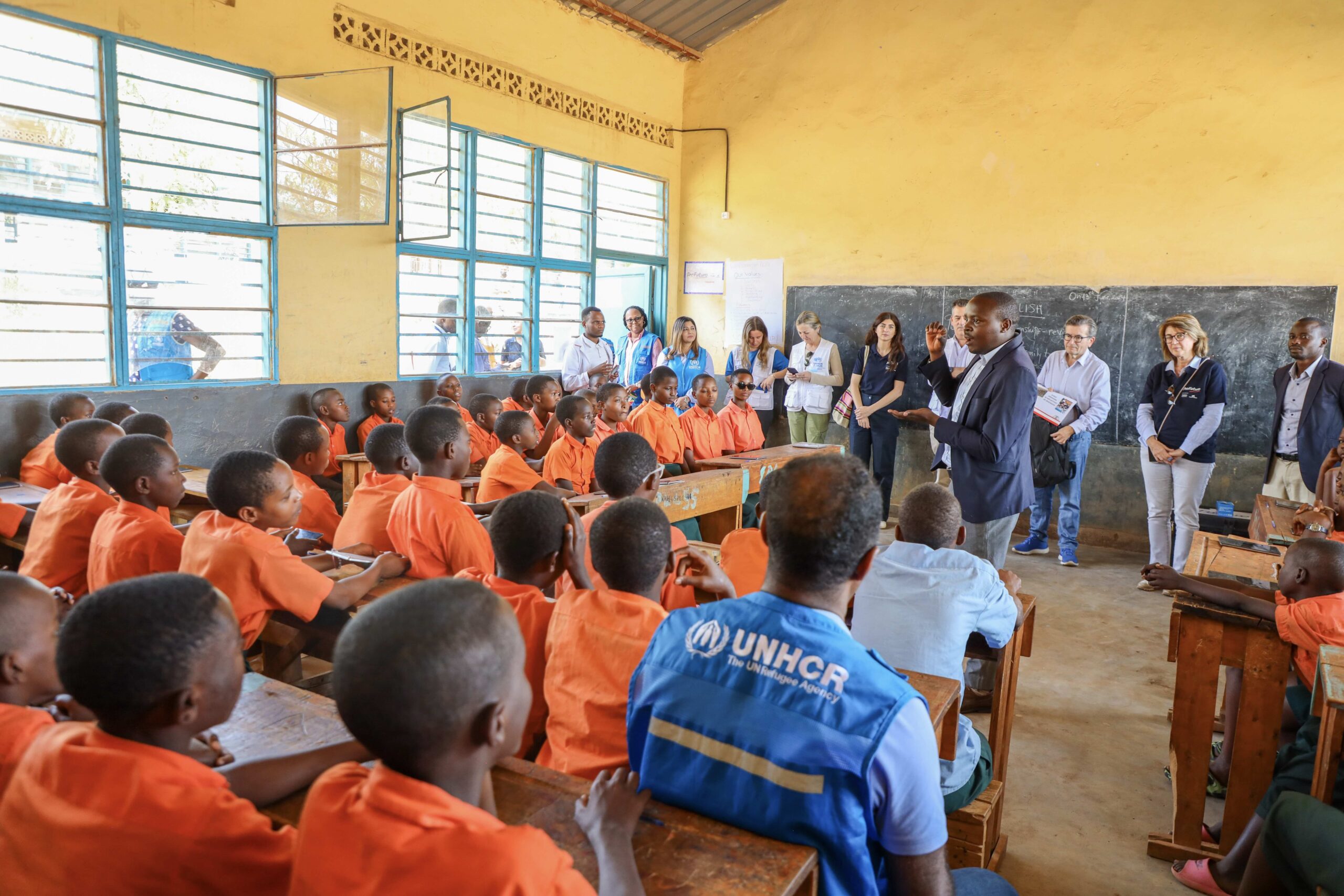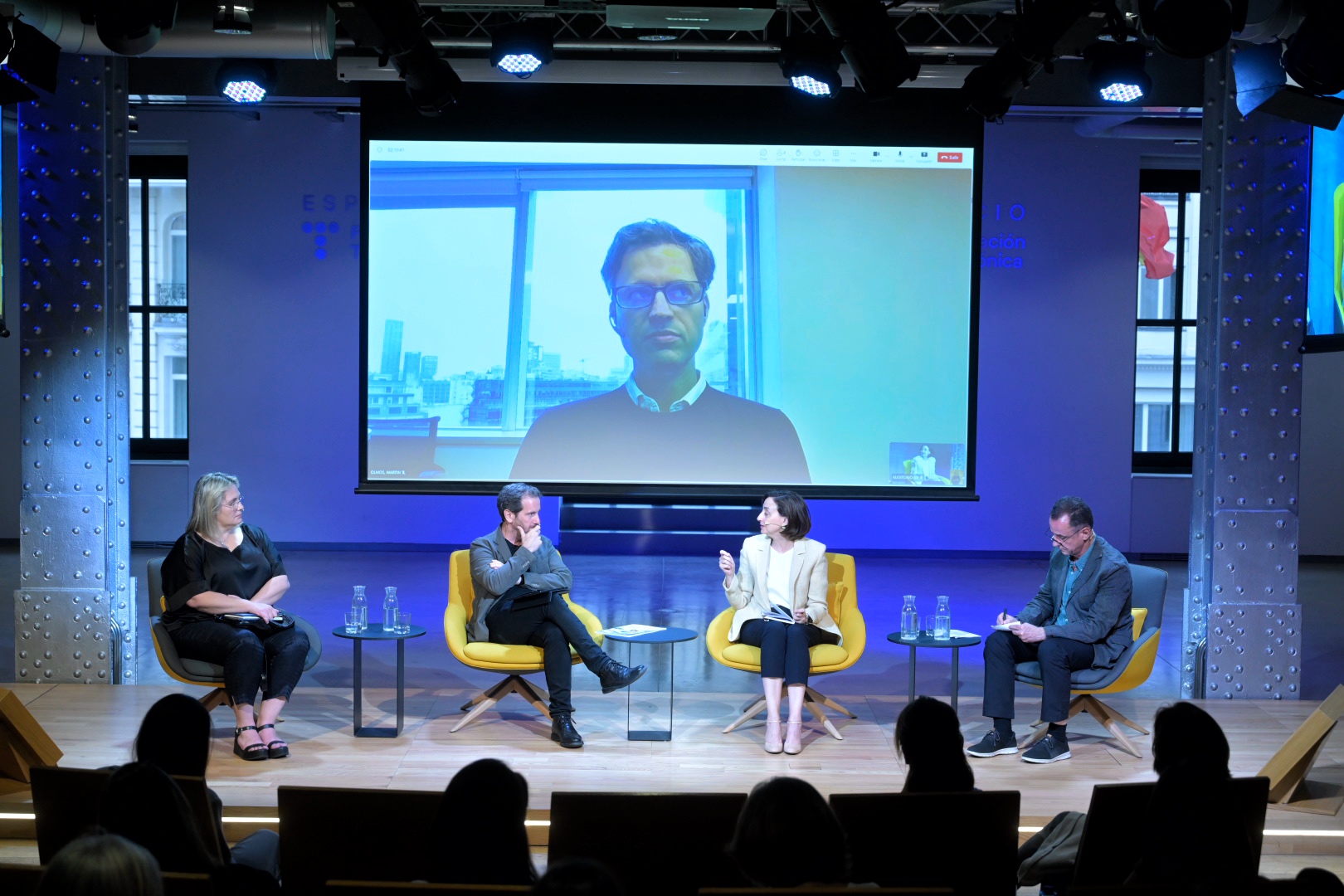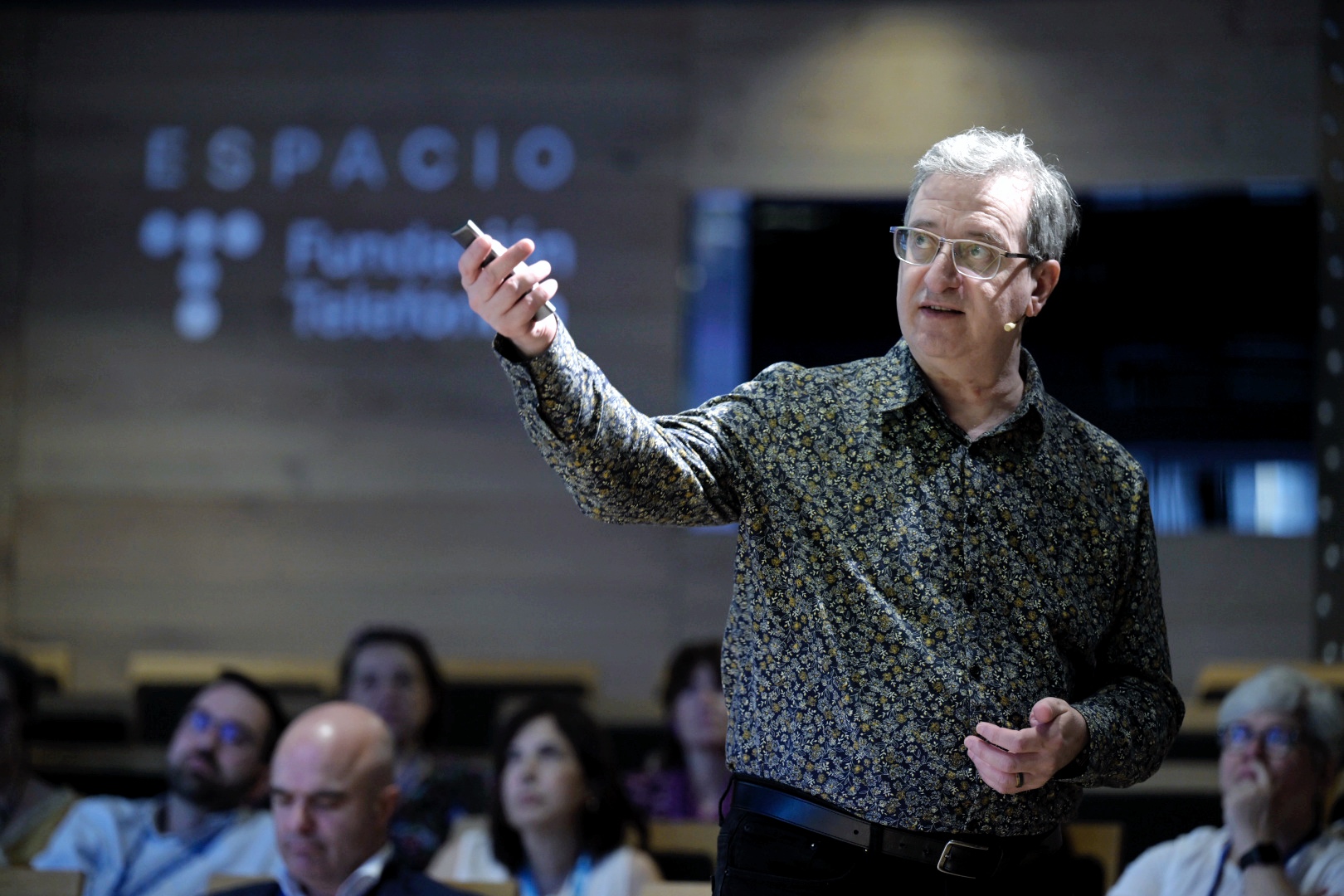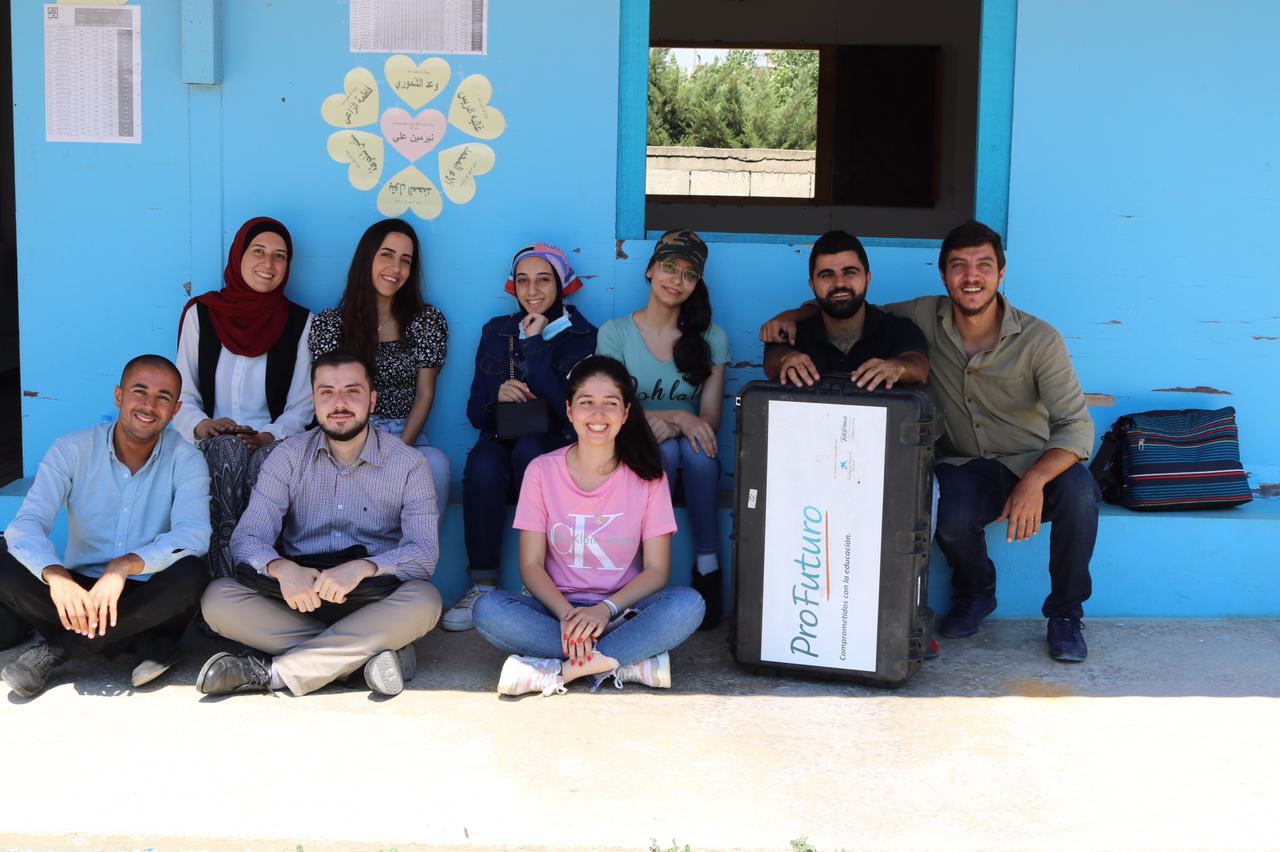Two years after the Global Refugee Forum (GRF), organised by the United Nations Refugee Agency (UNHCR), a high-level meeting is being held this week in Geneva, which ProFuturo is attending at the organisation’s invitation.
Over two days, senior government officials, refugees and various stakeholders are meeting to take stock of progress in the global response to refugee situations and to reinforce the commitment of GRF members, especially needed in the context of the COVID-19 pandemic.
In these two years, ProFuturo has maintained and expanded its commitment to the education of children in refugee situations.
Education in crisis situations
There are currently 80 million people in the world forcibly displaced from their homes. Of these, 29.6 million are refugees. Of the total refugee population, 48% are school-age children who are excluded from the education system, according to the latest UNHCR refugee report.
To address this situation, in 2017 ProFuturo started adapting our Comprehensive Digital Education Model to crisis situations. Since then, we have applied a holistic approach to all operations that target refugee populations, in line with the principles of the Inter-Agency Network for Education in Emergencies (INEE). Our goal: promote access to high-quality and well-rounded education for children who’ve been forcibly displaced and turned into refugees in camps, reinforcement centres and informal settlements in urban and rural environments.
ProFuturo contributes to improving the quality of education through innovation and technology, and in interventions with refugee populations, it also provides a safe learning space that helps improve their psychosocial well-being and strength.
To date, we have implemented educational projects in refugee camps and informal settlements in Lebanon, Malawi, Jordan, Rwanda and Tanzania.
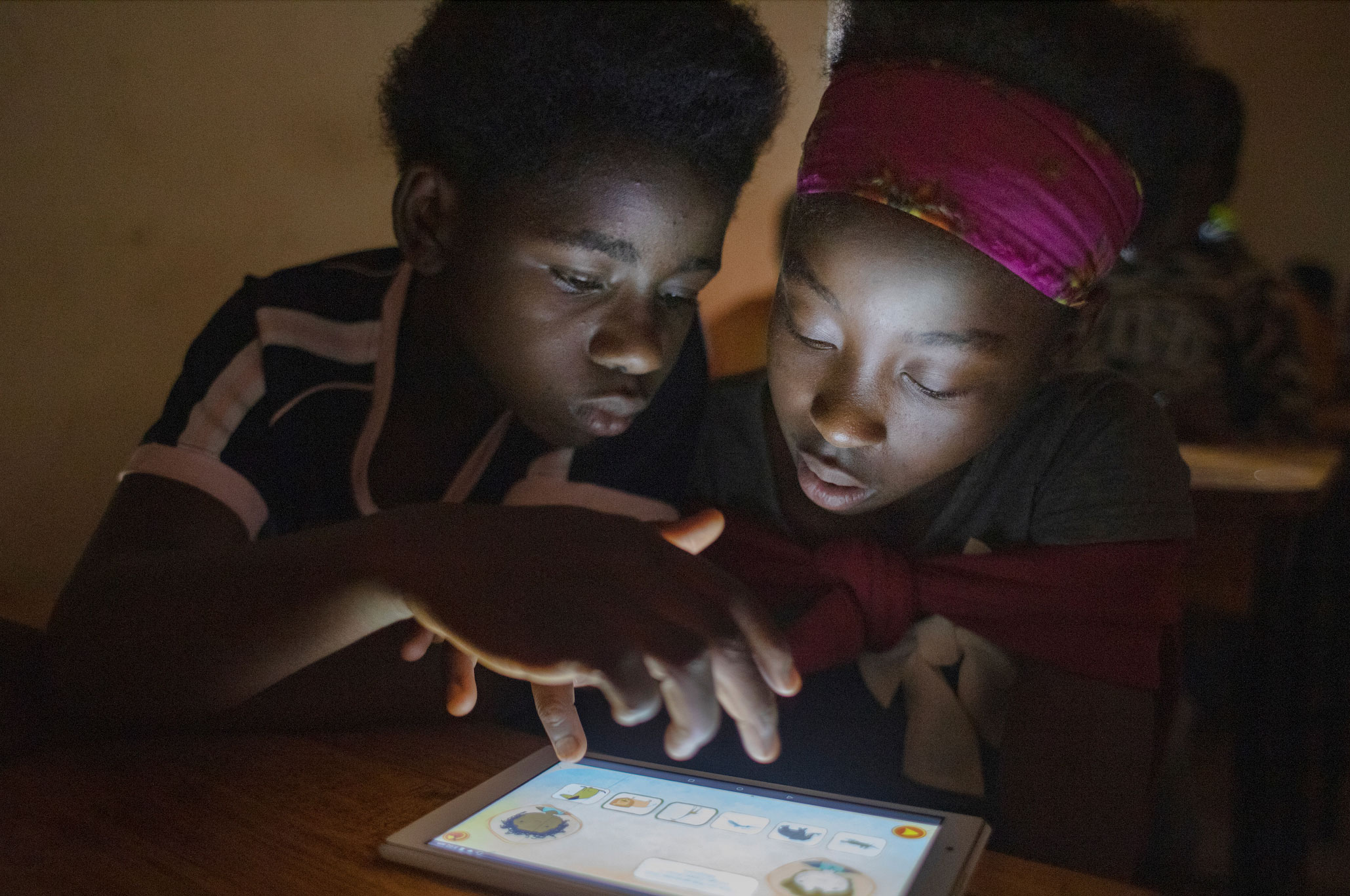
ProFuturo in emergency and refugee situations
Over the past four years, ProFuturo’s work with refugee children has evolved and adapted to different types of emergency contexts, reaching Lebanon, Jordan, Malawi, Rwanda and Tanzania.
These interventions are only possible through close collaboration and partnership with multiple organisations with solid experience on the ground. The progress made by ProFuturo towards the implementation of its pledge made at the Global Refugee Forum 2019 (EdTech for teaching & learning in refugee settings) has been as follows:
- In Rwanda, together with UNHCR, ProFuturo rolled out its programme in 2021 in 11 schools with the aim of reaching 17,000 children. The project will continue in 2022.
- In Tanzania, in partnership with Save the Children, ProFuturo has implemented its programme in 8 primary schools and 2 non-formal education centres, with the aim of reaching more than 9,000 children by 2021. This project will also continue into the future.
- In Lebanon, with the Jesuit Refugee Service (JRS), ProFuturo has reached almost 400 students to complement the work being done in the country with the Kayany Foundation and the American University of Beirut in 17 refugee schools, reaching 1,600 students and 103 teachers in 2021. In 2022 the programme will grow to 14 additional schools with new donated equipment to reach 4,413 students and 117 teachers.
- In Malawi, this year ProFuturo helped build 2 new facilities and sent additional tablets to schools. Since 2019, the programme has reached 5,611 students and 93 teachers. In 2022, the programme aims to reach 3,600 students and 67 teachers. Its partner in this country is also the Jesuit Refugee Service (JRS).
- In Jordan, together with Messengers of Peace, ProFuturo has already reached some 200 children. The project is being consolidated through the continuous training of 12 teachers. In 2022, an evaluation of the project will be begun and the programme is set to grow to 430 students and 47 teachers.
To date, ProFuturo has brought benefits to some 7,200 refugee children and 197 teachers, but there is still a long way to go and it is already working on expanding its reach to more students in sub-Saharan Africa and the Middle East. Together, with the help of technology, we can bring educational innovation to the areas that need it most.
The role of teachers in ProFuturo
A key element in achieving the goals of quality education is the teachers. That is why at ProFuturo we focus on providing them with ongoing training and support. This is particularly true in providing education to the refugee population, which has specific characteristics:
- Children’s learning is mostly non-formal and/or informal. In many host countries, the integration of these students into their education systems is a major challenge, and alternative educational settings need to be established.
- Learning resources are mostly inadequate, given that this is a new population in the host countries.
- There are no qualified teachers. In the refugee context, the term “teacher” refers to instructors, facilitators or supervisors of formal and non-formal education programmes and this can include both qualified and unqualified staff.
- Assistance is also provided to the host population coexisting with the refugee population.



